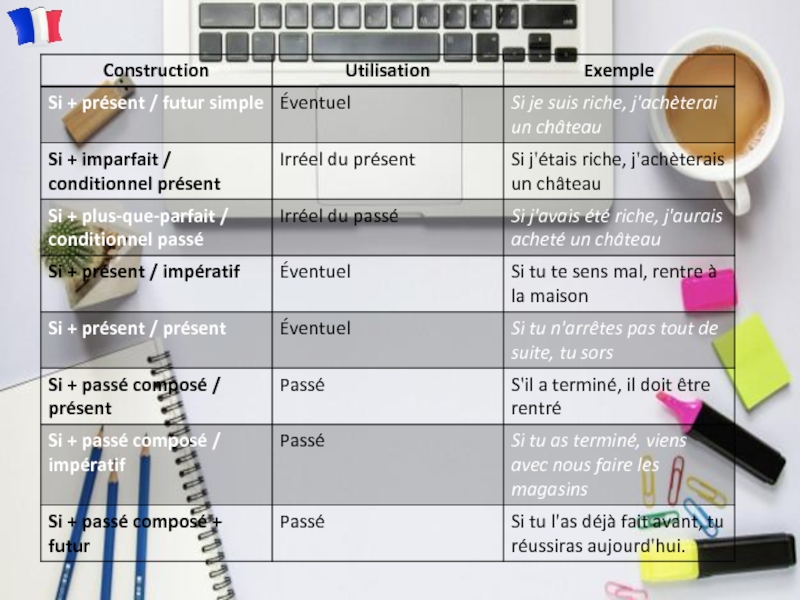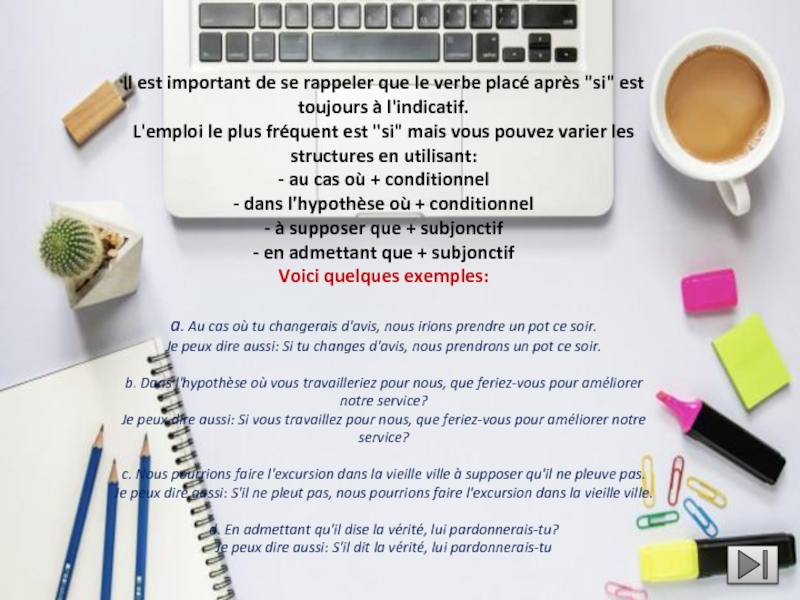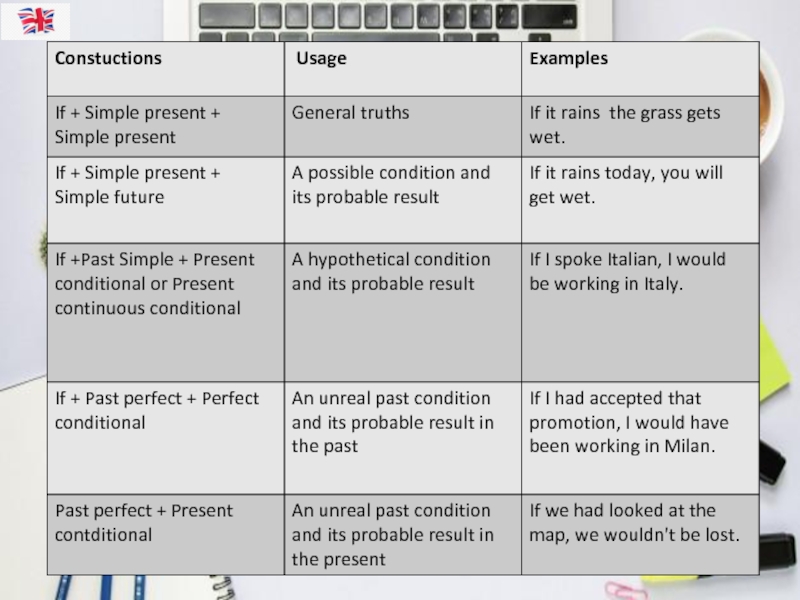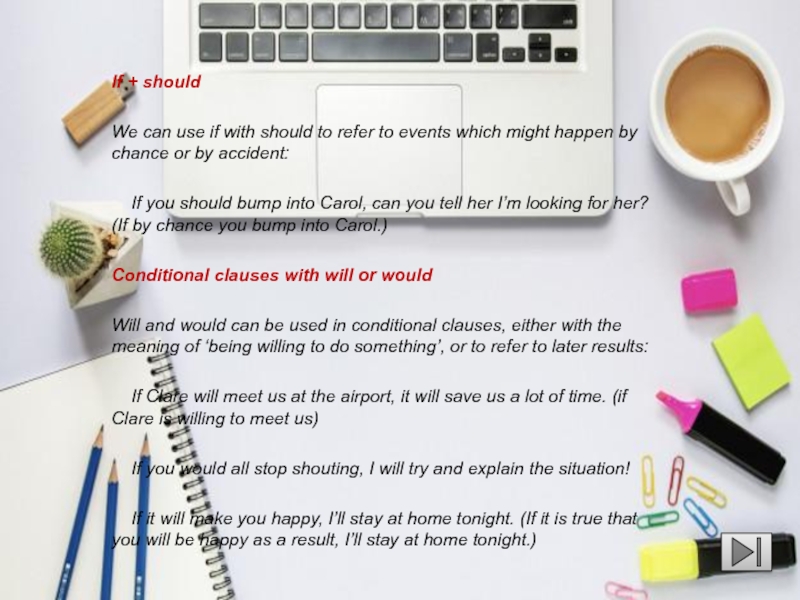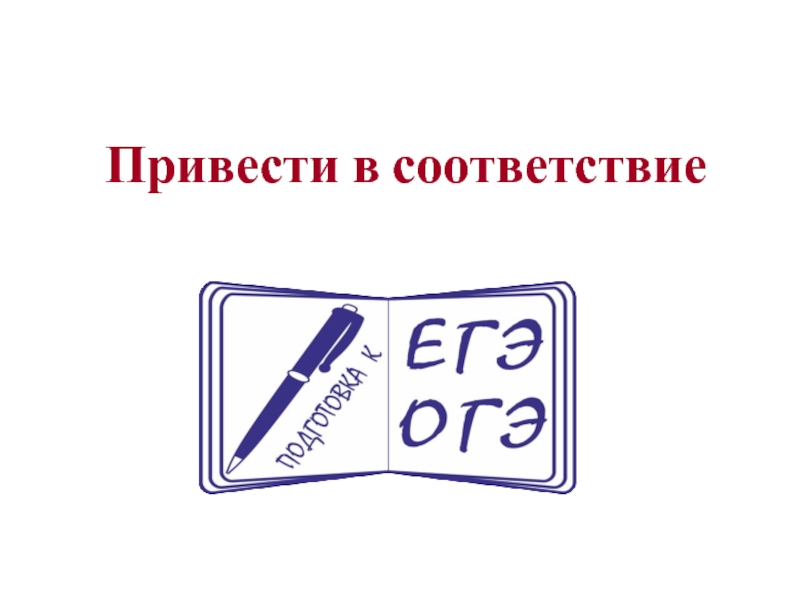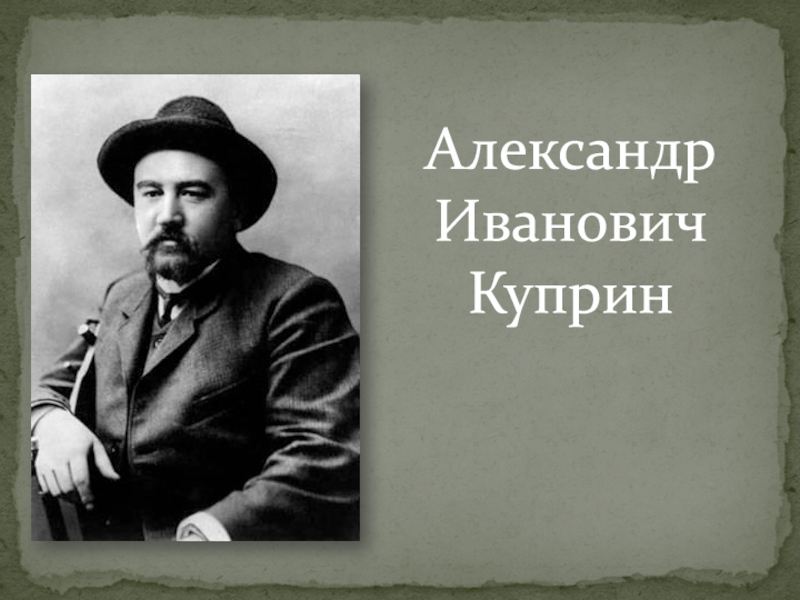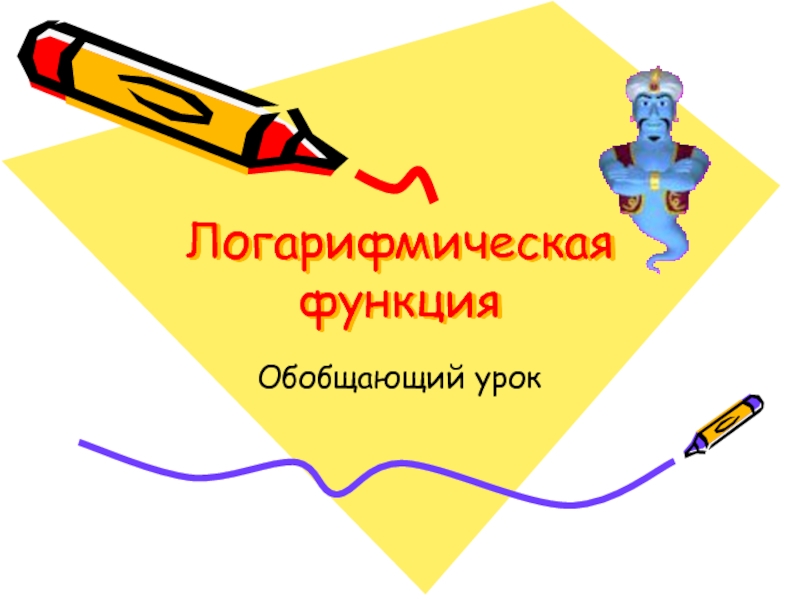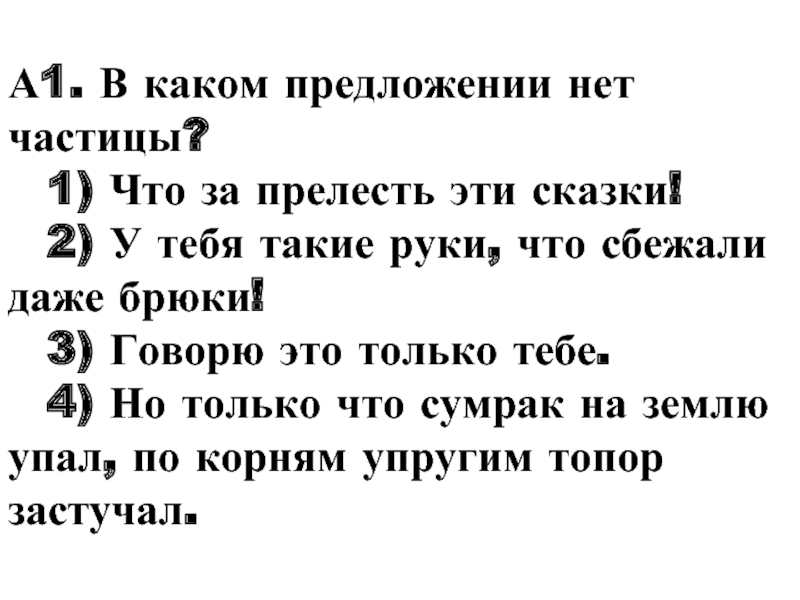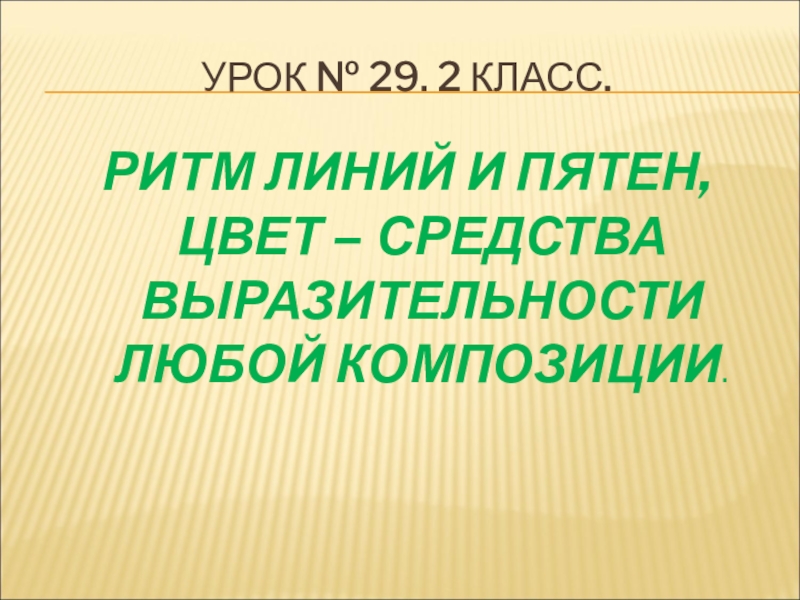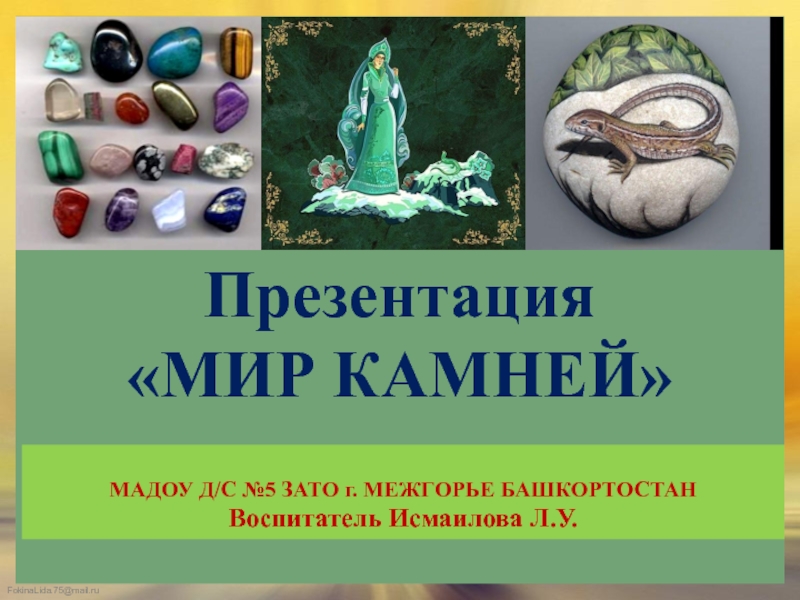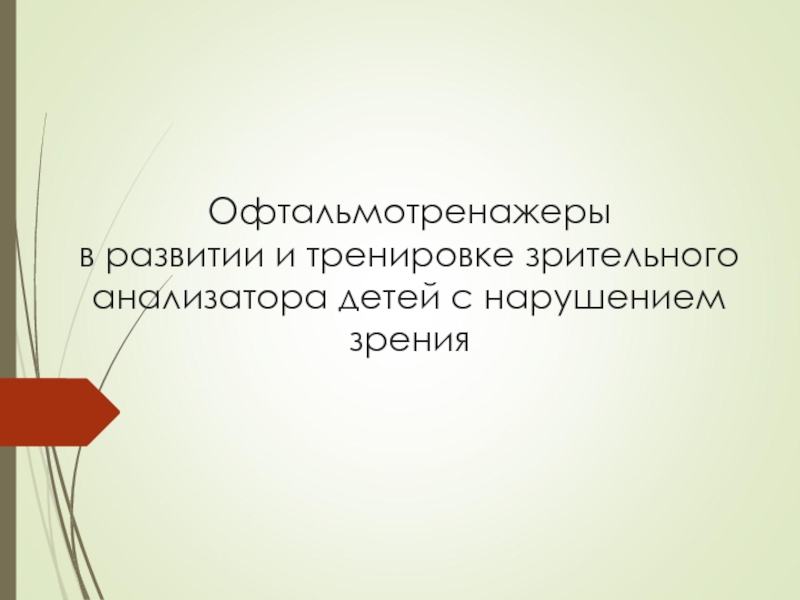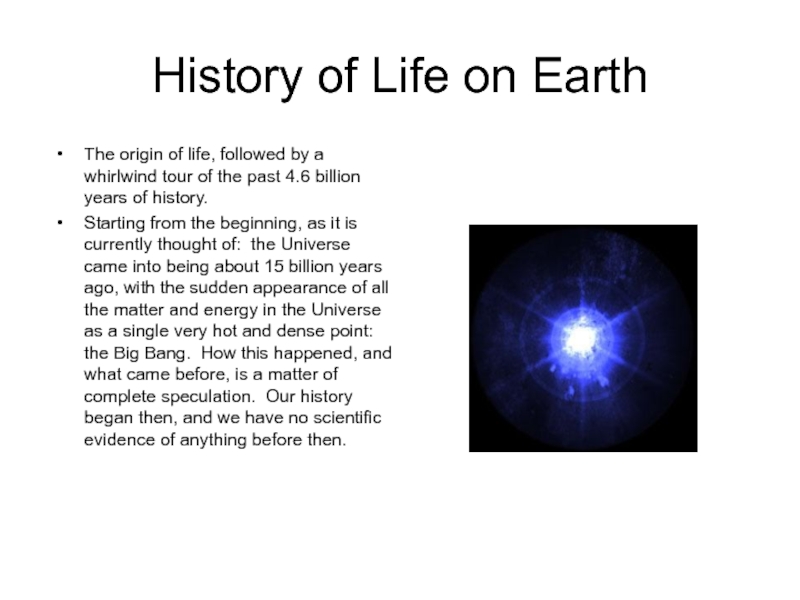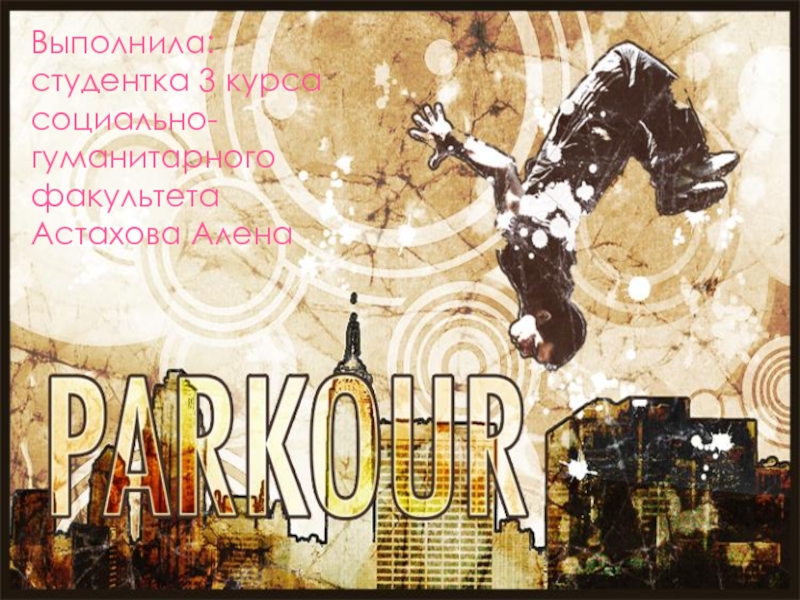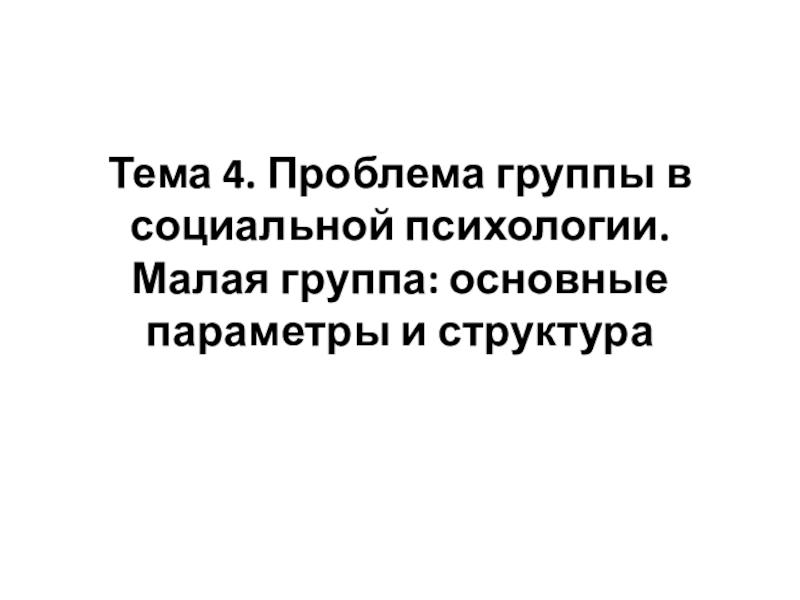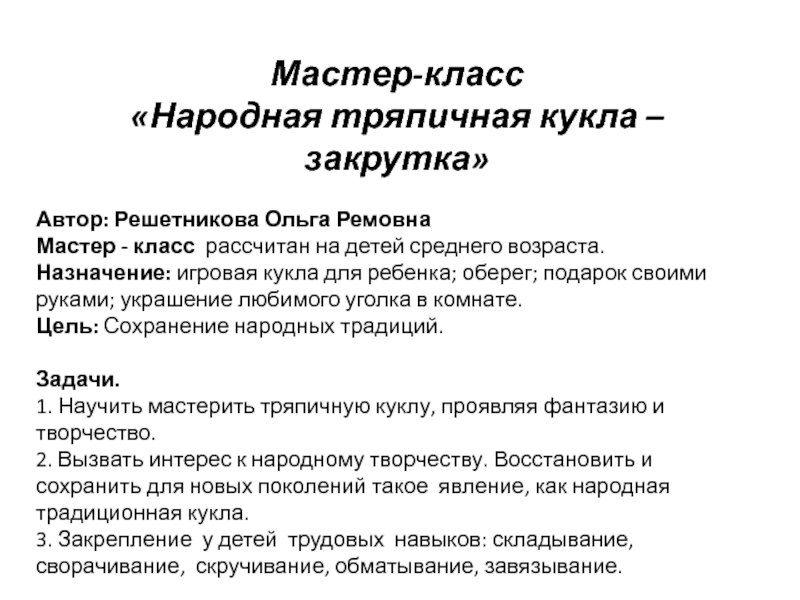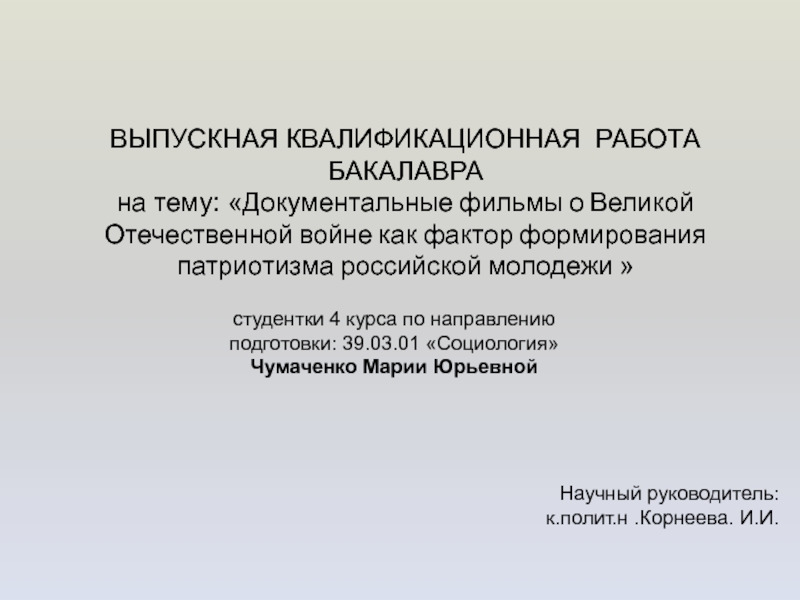Разделы презентаций
- Разное
- Английский язык
- Астрономия
- Алгебра
- Биология
- География
- Геометрия
- Детские презентации
- Информатика
- История
- Литература
- Математика
- Медицина
- Менеджмент
- Музыка
- МХК
- Немецкий язык
- ОБЖ
- Обществознание
- Окружающий мир
- Педагогика
- Русский язык
- Технология
- Физика
- Философия
- Химия
- Шаблоны, картинки для презентаций
- Экология
- Экономика
- Юриспруденция
Условные предложения
Содержание
Выберите язык
Слайды и текст этой презентации
Слайд 6If + should
We can use if with should to refer
to events which might happen by chance or by accident:
If you should bump into Carol, can you tell her I’m looking for her? (If by chance you bump into Carol.)Conditional clauses with will or would
Will and would can be used in conditional clauses, either with the meaning of ‘being willing to do something’, or to refer to later results:
If Clare will meet us at the airport, it will save us a lot of time. (if Clare is willing to meet us)
If you would all stop shouting, I will try and explain the situation!
If it will make you happy, I’ll stay at home tonight. (If it is true that you will be happy as a result, I’ll stay at home tonight.)


